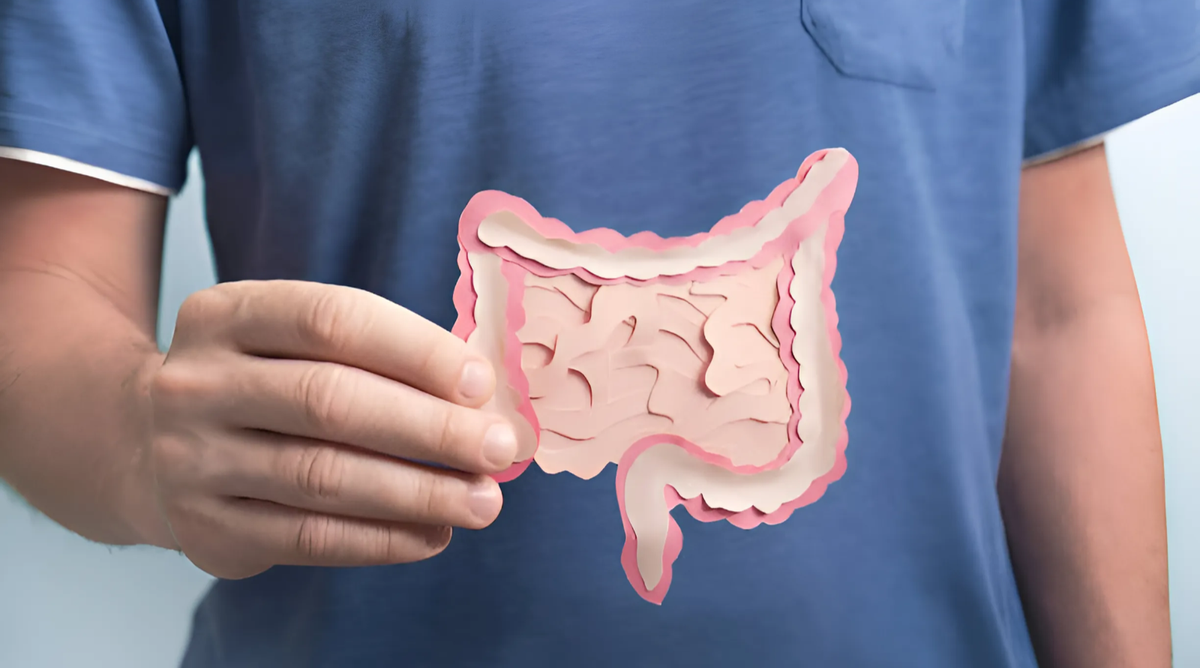Is Your Body Digesting Itself? The Surprising Mechanism Behind Aging
Explore groundbreaking research on how digestive enzymes escape the gut and cause tissue damage, potentially accelerating aging. Learn about the role of autodigestion in aging, collagen breakdown, and insulin resistance, and discover new anti-aging therapies targeting these processes.

Aging, with its characteristic decline in cellular function, tissue integrity, and overall health, has long puzzled scientists. While several theories have been proposed—ranging from the free radical hypothesis to the gradual shortening of telomeres—a recent groundbreaking study by DeLano and Schmid-Schönbein, published in PLOS ONE, suggests an unexpected culprit: autodigestion. The study presents the idea that aging may be driven, at least in part, by the leakage of digestive enzymes from the gut into other organs, causing progressive tissue damage.
This theory opens up a new understanding of aging, offering not only potential explanations for age-related diseases but also novel avenues for therapeutic interventions.
What Is Autodigestion?
Autodigestion, as proposed by the authors, refers to the process by which digestive enzymes, normally confined to the gastrointestinal tract, escape and begin to digest tissues in other parts of the body. These enzymes, produced by the pancreas, are designed to break down food into absorbable nutrients. However, if they leak out of the small intestine, they can attack the body's tissues, leading to inflammation, damage, and eventual organ failure.
Key Findings of the Study
The research highlights several critical observations:
- Digestive Enzyme Leakage: In young individuals (or rats in this study), enzymes such as trypsin, elastase, lipase, and amylase remain safely within the confines of the gastrointestinal tract. But in older individuals, the protective mucin/epithelial barrier weakens, allowing these enzymes to leak into peripheral organs, including the liver, heart, brain, lungs, and skin.
- Tissue Damage in Aging: The study used advanced immunohistochemistry techniques to show that older rats had significantly higher levels of digestive enzyme infiltration in their organs. This was linked to collagen degradation—a critical structural protein in connective tissues. Collagen degradation was notably severe in the skin, lungs, and heart of older rats, pointing to a potential mechanism for common aging symptoms like wrinkling, organ weakness, and even cardiovascular issues.
- Insulin Receptor Cleavage and Hyperglycemia: One particularly striking finding was that the accumulation of digestive enzymes in aged rats led to the cleavage of the insulin receptor. This suggests a link between autodigestion and insulin resistance, providing a potential explanation for the high prevalence of type 2 diabetes in older populations. As the insulin receptors are cleaved, glucose regulation becomes impaired, leading to elevated blood sugar levels (hyperglycemia).
- Impact of Enzyme Inhibition: When aged rats were treated with tranexamic acid, a serine protease inhibitor, the leakage of digestive enzymes was significantly reduced. This treatment also led to the partial restoration of collagen integrity and insulin receptor function, highlighting the therapeutic potential of blocking enzyme activity to slow down or mitigate aging processes.
Important Terms Explained
- Mucin/Epithelial Barrier: The mucin layer, along with epithelial cells lining the small intestine, acts as a protective barrier that prevents digestive enzymes from entering other parts of the body. In younger individuals, this barrier is strong, but as people age, it becomes weaker, allowing enzymes to leak out.
- Trypsin: A powerful digestive enzyme produced by the pancreas. It breaks down proteins into smaller peptides. In this study, trypsin was found to accumulate in various tissues of older rats, contributing to tissue degradation.
- Collagen: The main structural protein in connective tissues, which helps maintain the integrity and strength of skin, tendons, and bones. As the study shows, leaked digestive enzymes degrade collagen, leading to the weakening of these structures, which is a hallmark of aging.
- Serine Protease Inhibitor (Tranexamic Acid): The study used this compound to block trypsin activity. After treatment, there was a significant reduction in enzyme accumulation in old rats, which suggests that controlling enzyme leakage could potentially slow down the aging process.
Digging Deeper: The Role of the Mucin/Epithelial Barrier
The integrity of the mucin/epithelial barrier is a critical factor in preventing autodigestion. This barrier is composed of mucins, large glycoproteins that form a protective gel-like layer over the epithelial cells lining the gut. Its primary function is to prevent digestive enzymes from passing through the intestinal walls into the bloodstream. However, as the body ages, this barrier thins out, leading to increased permeability and allowing digestive enzymes to escape.
A related field of research is the leaky gut syndrome, often associated with inflammation and various autoimmune diseases. In aging, as this study suggests, a similar process might be occurring at a slower, more chronic rate. The gradual weakening of the mucin barrier could lead to low-level enzyme leakage, causing ongoing tissue damage that accumulates over decades. This connects aging not only with digestive processes but also with chronic inflammation, a well-known hallmark of aging (also called inflammaging).


Collagen Breakdown: A Hallmark of Aging
Collagen, the most abundant protein in the human body, plays a vital role in maintaining the structure and strength of tissues. It's found in the skin, tendons, bones, and blood vessels. The degradation of collagen is one of the most visible signs of aging, leading to wrinkles, sagging skin, and weaker connective tissues.
In the study, researchers used collagen hybridizing peptides to detect where collagen breakdown occurred. The results showed significant collagen damage in aged rats, particularly in tissues where digestive enzymes had accumulated. This adds weight to the hypothesis that collagen degradation in aging may not be solely due to mechanical wear and tear or oxidative stress, but also due to the destructive effects of leaked digestive enzymes.
Implications for Chronic Diseases: The link between collagen breakdown and enzyme leakage also offers potential insights into the development of age-related diseases like osteoarthritis, where collagen breakdown in joints is a central feature. Furthermore, diseases such as heart failure and atherosclerosis, which involve the weakening of cardiovascular tissues, could also be exacerbated by this process.
Metabolic Health and Insulin Resistance
Perhaps one of the most profound insights from the research is the connection between autodigestion and insulin resistance, a key feature of metabolic syndrome and type 2 diabetes. The study found that aged rats had higher levels of glucose and insulin receptor cleavage. Digestive enzymes, particularly trypsin, were shown to damage the extracellular domain of insulin receptors, disrupting their function.
This aligns with previous studies that have shown how insulin resistance increases with age. While it’s commonly attributed to factors like obesity and sedentary lifestyle, this research suggests an additional, less-explored mechanism: enzyme-mediated receptor cleavage. If digestive enzymes are continuously leaking into the bloodstream and tissues as we age, they may progressively impair insulin signaling, leading to poor glucose regulation.
Therapeutic Potential: Inhibiting Digestive Enzymes
The success of tranexamic acid in reducing enzyme leakage and tissue damage in aged rats opens up the possibility of developing enzyme inhibitors as anti-aging therapies. Serine protease inhibitors, like the one used in this study, could serve to protect tissues from the harmful effects of autodigestion. If these findings are replicated in humans, enzyme inhibition could emerge as a new strategy for mitigating age-related tissue degradation and metabolic disorders.
However, the use of enzyme inhibitors requires careful balancing. Digestive enzymes are vital for nutrient absorption and overall digestion, so inhibiting them excessively could lead to malnutrition or other gastrointestinal issues. Future research will need to focus on how to safely inhibit these enzymes without disrupting normal digestive processes.
Broader Implications for Aging Research
The concept of aging by autodigestion challenges existing paradigms and could lead to new approaches in aging research. Traditional theories of aging—such as telomere shortening and the free radical theory—focus on internal cellular mechanisms. The autodigestion hypothesis, on the other hand, places the digestive system at the center of the aging process, suggesting that the act of digestion itself may contribute to our demise.
This new model may also help explain the benefits of certain anti-aging interventions, such as caloric restriction and intermittent fasting. These diets have been shown to increase lifespan in various animal models, but the mechanisms behind these effects are still debated. If autodigestion plays a significant role in aging, then reducing the frequency and intensity of digestion (through fasting or caloric restriction) could help preserve the integrity of the mucin barrier, preventing enzyme leakage and thereby slowing down tissue damage.
Conclusion
The research on autodigestion presents a compelling new perspective on the aging process. The idea that digestive enzymes, essential for breaking down food, could escape and wreak havoc on our tissues is both fascinating and troubling. As science continues to unravel the complexities of aging, this study suggests that interventions targeting the mucin/epithelial barrier or digestive enzymes could play a crucial role in extending healthspan.
Future research will need to focus on translating these findings to humans and exploring how lifestyle factors—such as diet, exercise, and possibly enzyme inhibitors—can be leveraged to maintain the integrity of the mucin barrier and prevent enzyme leakage. If successful, such strategies could open the door to a new era of anti-aging therapies, fundamentally changing how we approach age-related diseases and longevity.
Sources
- DeLano, F. A., & Schmid-Schönbein, G. W. (2024). Aging by autodigestion. PLOS ONE, 19(10), e0312149. https://doi.org/10.1371/journal.pone.0312149







